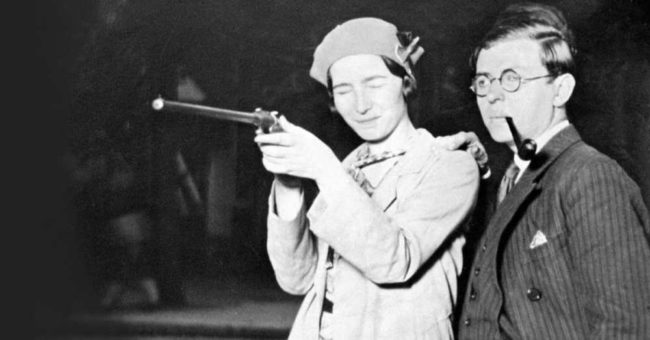We run our website the way we wished the whole internet worked: we provide high quality original content with no ads. We are funded solely by your direct support. Please consider supporting this project.

Can Life Have Meaning Without God?
Article by Dan Kent
King Sisyphus (“Siss-uh-fuss”) was a mythical king who enjoyed killing random travelers and starting wars. He killed for pleasure. He killed for profit. He killed for pride. When he died the gods showed him no mercy. The wicked king was condemned to spend eternity pushing a mighty rock up a hill. The hill was such that, whenever he managed to heave the rock to the top, the rock would immediately roll down the other side and Sisyphus was obliged to descend the hill and began pushing again, and again, forever.
The myth of Sisyphus is a haunting picture of a futile existence. When we really imagine the punishment (the shoulder pressed against the stone, the awkward footing, the windless heat, the sweat dripping in the eyes, the monotony of the endless task, the pointlessness of the accomplishment, and the total absence of reason for the challenge) we might feel a peculiar dread buzzing within us. It’s not merely dread born out of pity for Sisyphus. It’s dread for our own lives. We wonder if our own life might merely be a sad bunch of pointless tasks without any ultimate payoff for our toil.
If God does not exist, it has been argued, then life can have no ultimate meaning. Historically, the argument has gone along these lines: if humans are here only because of bio-chemical circumstance, then humans are accidents (oops!). We weren’t meant to be here. The universe did not require us, and it does not have rules for us, or a plan for us. The universe doesn’t even care about us. We are merely thrust into the machine of life and struggle to stay alive as long as we can. But eventually we die. And that is all.
Atheism seems to have two prominent denominations: existentialism and nihilism. Most atheists are existentialists and would deny that life without God is meaningless. But nihilists won’t deny it. In fact you’ll often find nihilists defending the meaninglessness of a godless life. These folks are not disillusioned goth teens getting all morose and forlorn with the black pants and the dark eye paints. We’re talking about pipe-puffing, bearded academics dwelling in the book stacks. We’re talking about well read, thoughtful, atheist scholars who care a great deal about having a well thought out, authentic worldview. If there is no God and that implies meaninglessness, so be it.
But meaninglessness is a heavy gravity, and futility sucks vitality like nothing else. If life is truly futile and meaningless, it’s simply too difficult for most people to tolerate.
Enter Jean-Paul Sartre with a red cape and bright tights. Sartre was a brilliant philosopher who was convinced that life as an Atheist could still be meaningful. His argument went something like this: since people have free will, they can decide to be whatever they want to be. They can do with their lives what they choose. So, if I were an Atheist, creating my own self how I want supposedly gives my life meaning. I do not need the universe, God, or Abraham Lincoln to give me meaning because meaning has nothing to do with anything other than me. I can decide to be a good father, a professional fisherman, a wealthy investor, or the world’s heaviest figure skater. We are thrust into this world without definition. We define ourselves, and that is our meaning.

Jean-Paul Sartre & Simone de Beauvoir about to make some meaning
This is a brilliant argument, and I get no pleasure smashing on people’s worldview or on their sources of hope. But I think Sartre is dead wrong in his entire effort. Sartre has not created meaning, he has only created purpose. Purpose is a powerful thing and should not be trivialized. Hey, purpose is great! But it’s not meaning.
Suppose Sisyphus reads Sartre and decides: “I am going to be the fastest rock pusher ever.” According to Sartre, Sisyphus has created meaning. But even if Sisyphus accomplishes his goal, the rock still rolls down the other side of the hill. There is still no point to Sisyphus’ existence. No meaning. Sisyphus could learn to sing opera, memorize the Bible, and push the rock up the hill while walking on his hands, but his existence is still meaningless and futile. Without God the best we can accomplish in life is purpose. Existentialism fails, and nihilism is inevitable.
This only makes sense. Meaning, by definition, is something that is meant to be. It requires intention. But you can’t have intention from a source—like the universe—that does not have the capacity to intend. God, of course, has this capacity, and a universe created by God can therefore have intention. It can have a meant to be. It can have meaning.
Perhaps what is confusing about all this is that meaning seems like it’s simply a bigger purpose. This is true. In fact, meaning is the biggest purpose. Meaning is the WHY that subsumes every why. But while meaning is a bigger purpose, that is not all that it is. It is also a connection with something ultimate and non-contingent. Purpose is local and contingent. If I am a train-car and life is a train track, my purpose in life might be to ensure my train-car runs smoothly on the tracks. But ultimate meaning in life must involve a confidence that the tracks go some place I want to be.
Without God we really can have purpose in life, but we can not have meaning. Acting as if there is meaning in a godless universe is, as Camus put it, an “absurd… incomprehensible, dumb show” (The Myth of Sisyphus, pg. 11). Without God, we toil in our universe alone, and the best we can do is Sisyphus singing opera as he pushes against his stone.
Category: Guest Contributor
Tags: Meaning, Philosophy
Guest Contributor:

Daniel Kent has authored several books, including Confident Humility: Becoming Your Full Self Without Becoming Full of Yourself, and the series The Training of KX12. He also produces and hosts ReKnew’s Podcast Greg Boyd: Apologies & Explanations and serves as editor-in-chief here at ReKnew.org.
Related Reading

A Rational Defense of Belief in God
The New York Times recently posted a review of Alvin Plantinga’s book, Where the Conflict Really Lies: Science, Religion, and Naturalism. In it, Plantinga argues on philosophical grounds that, among other things, theism is not in conflict with science, that a belief in naturalism along with evolution is contradictory, and that “Faith…is another basic way of forming beliefs, distinct…

Lighten Up: You Gotta Believe In Something, Man!
Two things here: 1) How does this philosopher not see that “not believing in believing” is itself a belief? 2) Is that a turtleneck or is that philosopher just really hairy?

The Logical Hexagon Made Simple
by: Greg Boyd The Hexagaon in a Nutshell For those of you who don’t have the twenty to thirty minutes it will probably take to read this essay but who nevertheless would like to have some idea of what the Logical Hexagon is all about, here is my two sentence elevator speech: The Logical Hexagon…

Free Will: An Aesthetic Model
Greg continues his thoughts on free will by offering an aesthetic model for free will. This one gets pretty philosophical, but it’s worth toughing it out.

Reflections on the Influence, and Damage, of Plato’s Timaeus 28a
The Timaeus is Plato’s account of the creation of the world. Ancient philosophers were divided as to whether Plato meant the work to be taken literally or mythically, as are modern scholars. The work was arguably the single most cited work by early church fathers. And the text I want to reflect on (28a) is…

Rethinking Transcendence
Going back to pre-Socratic philosophers and running through the major strands of the church’s theological tradition, the conception of how God (or, in ancient Greece, “the One”) was arrived at primarily by negating the contingent features of the world that were deemed inferior and in need of explanation. God transcended the world, for example, by…
